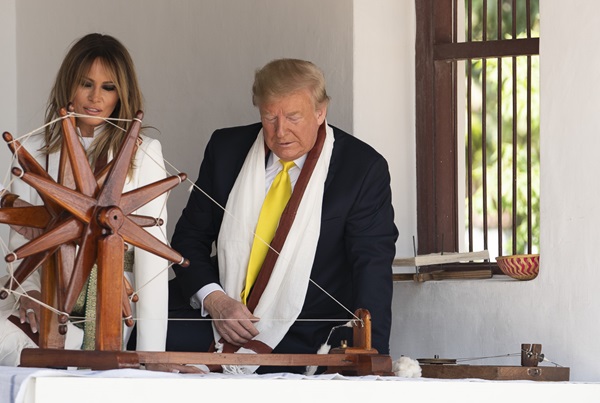.png)

Ajay Srivastava, founder of Global Trade Research Initiative, is an ex-Indian Trade Service officer with expertise in WTO and FTA negotiations.
March 8, 2025 at 4:51 AM IST
India must not be drawn into an unbalanced trade agreement with the United States. The US has misrepresented trade data and publicly pressured India into one-sided negotiations.
Under these circumstances, nothing should be off the table, including withdrawing from all trade talks. New Delhi should prepare to engage with the Trump administration as other nations are doing.
A comprehensive Free Trade Agreement should be firmly rejected, as it would restrict India while allowing Washington to alter terms at will. A more strategic approach would be to propose a "Zero-for-Zero" industrial tariff deal, ensuring reciprocal tariff eliminations without exposing key sectors like agriculture and automobiles. This should be proposed before April, enabling India to shape the negotiations rather than react to US pressure.
At the India Today Conclave, US Secretary of Commerce Howard Lutnick laid out the Trump administration’s new trade doctrine—one that conveniently ignores American protectionism while demanding India "rethink" its approach.
Among his key pronouncements:
- America has been too generous for too long, allowing countries like India to benefit while maintaining high tariffs.
- Trade must be "reciprocal"—a term used selectively to pressure India into lowering tariffs while ignoring the US’s own trade barriers on agriculture, steel, and pharmaceuticals.
- A comprehensive FTA is the only way forward, with India expected to put "everything on the table"—a euphemism for surrendering control over crucial policies such as government procurement, data flows, and agricultural protections.
- India must open up its farm sector, with quotas and limits instead of outright tariff reductions—because, as Lutnick put it, "you can’t just say it’s off the table."
- To his credit, Lutnick did not mask his transactional approach.
Washington does not want India balancing its global trade relationships; it wants India to sign a bilateral deal that puts American interests first.
The Secretary also implied that India’s military procurement choices should align with US preferences—an unsubtle jab at India's longstanding strategic autonomy.
Yet, in his attempt to frame India as "tariff king," Lutnick conveniently ignored some key facts.
India’s weighted average tariff on US imports is just 4.9% higher than the US tariff on Indian goods—hardly the economic blockade he suggests.
Meanwhile, the US itself imposes a 350% tariff on tobacco, and its own agricultural protectionism is among the highest in the world.
Perhaps the most ironic claim of all was that tariffs have "no impact on inflation"—a statement that would make even Trump's most ardent supporters raise an eyebrow.
India’s Response
India should stay the course and avoid any hasty FTA commitments. No other country is signing a comprehensive deal with the US under Trump—and for good reason. Instead, India should:
- Stick to a "Zero-for-Zero" tariff agreement that eliminates duties on most industrial goods but excludes agriculture, autos, and key domestic sectors.
- Reject broad trade negotiations that could open the door to American demands on patents, data, and procurement policies.
- Challenge US trade rhetoric more aggressively—Washington's misrepresentation of trade figures and tariffs must be countered, both diplomatically and publicly.
- Avoid reacting to US tariff threats prematurely—India’s export exposure to the US in many of the targeted sectors is minimal, and retaliatory tariffs, if necessary, should be calculated and strategic.
Lutnick spoke of a "special relationship" between India and the US, but the only thing special about it seems to be America’s expectation that India must constantly prove its loyalty.
Meanwhile, Trump’s latest move—tearing up the US-Mexico-Canada FTA and slapping 25% tariffs on Canada and Mexico—is a clear warning that Washington’s trade commitments mean little.
India has no reason to rush into a deal on Washington’s terms. The world is watching how America treats its allies—and New Delhi would do well to remember that being a friend of the US does not mean being a pushover.




